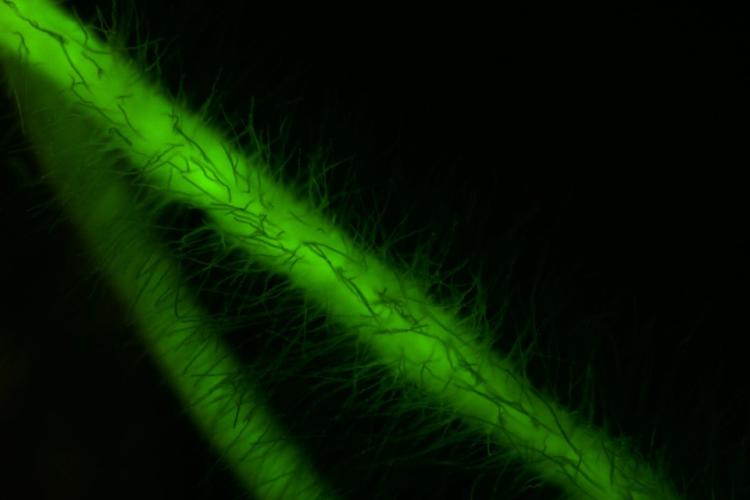Metabolic Reprogramming during Plant-Microbe Interactions
Plants are continuously challenged by microbial organisms living in their biosphere, such as fungi and bacteria. Metabolic reprogramming, both within the plant and the attacker, is essential in the establishment of these relations. Within UGent-funded collaborative projects, we are using our various omics platforms, including transcriptomics, protein-protein interactomics and metabolomics, to map the networks determining the metabolic reprogramming in the cells of both the infected plant organ and the attacker.
Within this frame we employ two types of plant-microbe combinations. In the first, we study the interaction between tomato and rhizogenic Agrobacteria, which cause proliferation of so-called ‘hairy roots’ on infected plants. Hairy root cultures are proven attractive and cost-effective options for the mass production of high-value plant metabolites and can be grown in contained conditions, hence they also represent an excellent fit to our general research mission. We particularly focus on the ‘oncoproteins’ encoded on the T-DNA of the Ri plasmid of the K599 strain, which is also the causal agent of the crazy root disease that causes yield losses of tomato and other Solanaceae and Cucurbitaceae crops in greenhouses in several European countries. It is astonishing how little actually is known on the function and activity of the oncoproteins of rhizogenic Agrobacteria.
In the second, we study the interaction between tomato and a set of fungi with different lifestyles. Chemical communication via specialized metabolites determines interactions between fungi and plants. Just like plants, fungi possess a metabolite treasure trove, with potent applications for agriculture and human health, yet the vast majority awaits discovery, typically because their biosynthesis is silent in lab conditions. Within this project, we will establish an innovative plant-based platform to discover, study and produce yet unknown fungal metabolites. The plant-based platform will be designed based on novel, paradigm-shifting insights acquired during our past research on plant defense. As such, we expect it will offer unprecedented possibilities to activate and study fungal metabolism.

